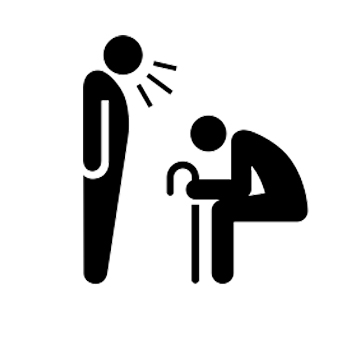Legal Assistance for Elder Abuse & Estate Planning
Elder abuse is a grave issue that requires legal intervention. Our law firm specializes in elder abuse and estate planning, providing resources and assistance to victims and their families. This article aims to shed light on the various aspects of elder abuse and how our legal services can help.
Elder abuse can take many forms, including physical, sexual, emotional, and verbal. It often targets individuals who are unable to defend themselves due to age, physical weakness, or communication barriers. Understanding the severity and different types of elder abuse is crucial to prevent it and seek justice for victims, especially in NYC.
Our Legal Services for Elder Abuse & Estate Planning
Regrettably, elder abuse is a common occurrence in the United States, leaving many victims without adequate support or representation. Our legal team can help victims of elder abuse by developing a comprehensive care plan for their loved ones and representing them in court if necessary.
Considering the direct and indirect costs of elder abuse, including hospitalization and loss of productivity due to pain and suffering, the financial toll can exceed $10 billion. Our elder law attorneys also offer services like estate planning and guardianship to help seniors manage their finances and healthcare decisions before they become incapacitated or pass away.
Seeking Justice for Elder Abuse Victims
Our law firm, based in New York, is a leading authority in elder abuse law, including financial exploitation and neglect. We are dedicated to helping victims regain control of their lives and seeking justice for elders who have been abused. We work closely with victims and their families, providing robust representation throughout the legal process. We are also committed to raising public awareness about this growing issue to prevent future abuse. Our services extend to estate planning, probate, and probate attorneys, linking these areas of law to provide comprehensive legal support.
Frequently Asked Questions
1. How prevalent is elder abuse?
Approximately 15% of all older adults in New York State have experienced some form of elder abuse since turning 60. However, for every reported incident, nearly 25 go unreported.
2. How can I tell if I need legal help for elder abuse?
If you suspect something is wrong in your family but can’t pinpoint what it is, it might be time to seek legal advice. It could be related to estate management, physical abuse, or other issues that require immediate attention.
3. When is elder abuse most likely to occur?
Elder abuse is more likely to occur when seniors live with their children. Surprisingly, children are often the perpetrators of elder abuse. Statistics also show a higher rate of elder abuse in rural communities compared to urban areas.
4. What steps should I take if I need legal help for elder abuse?
Discuss the situation with your friends and family, find the right legal help, and hire an experienced elder law attorney who specializes in this field.
5. What should I do in cases of financial abuse?
Financial abuse, such as unauthorized use of credit cards, illegal fund transfers, identity theft, or theft of physical property, is a serious crime. Our firm has extensive experience in taking legal action against those who exploit seniors financially.
6. How should I approach an older adult who I suspect is being abused?
Speak to the older person privately to create a safe environment for disclosure. Start with simple questions and never promise to keep the abuse a secret. Instead, the older adult should be informed about available options and work together to create a safety plan. Always leave them with information about available resources.
7. Can nursing homes be held accountable for abuse?
If your relative has been abused, injured, or suffered from malnutrition in a nursing home, a case can be filed to recover damages. The compensation will vary depending on the severity of the abuse or neglect. Contact our firm for more information about potential compensation in a civil case.
8. What are the main responsibilities in elder abuse cases?
Elder care and nursing home rights, estate planning and elder fraud, Medicaid eligibility and financial needs, and long-term care needs and contracts are all crucial aspects of elder abuse cases.
9. Who should manage the finances of an older adult?
As a caregiver, you may be the best person to understand the needs of a senior loved one. However, if you’re financially overextended or unable to manage an older adult’s finances, it’s important to seek help.
10. How should I communicate with an older person who I suspect is being abused?
Speak to the older person privately to create a safe environment for disclosure. Ask simple questions about their daily activities and whether they feel respected. Avoid using the term “abuse” and instead ask if they’re afraid of anyone they know. Always leave them with information about available resources.




